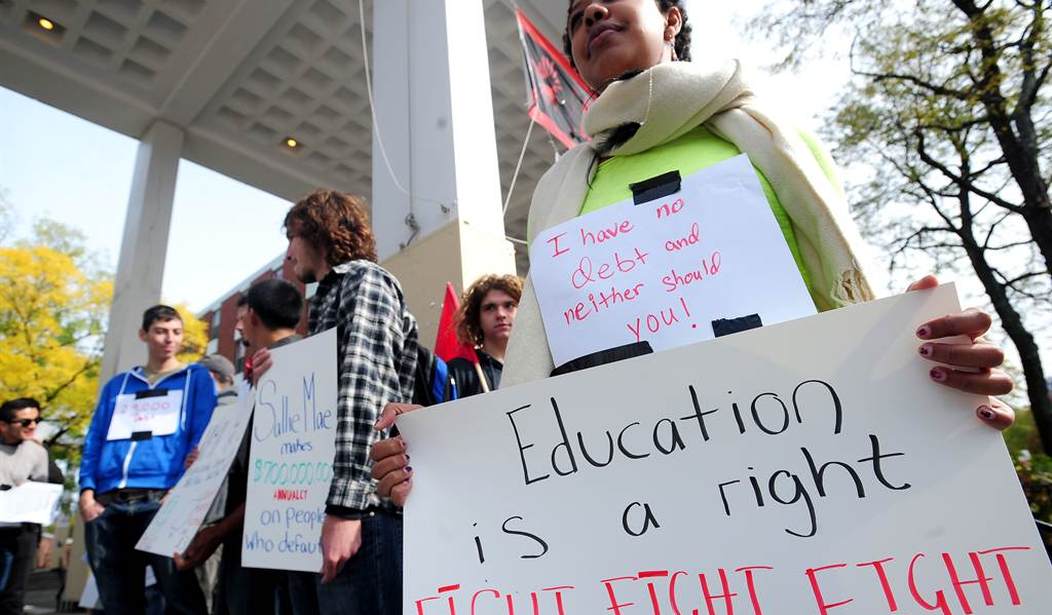Interest rates on federally-subsidized student loans are set to double on Monday while both Democrats and Republicans have traded rhetorical barbs on both whose fault the rate reset is and how to fix the whole mess. A promising budget-neutral proposal that was put together from pieces of good legislation was quickly killed, however, by Senate Democrats who took a my-way-or-the-highway attitude.
Matthew Chingos, an education policy analyst at the Brookings Institution, detailed how the potential compromise came together - and how quickly and easily it fell apart:
The bipartisan compromise bill one-ups existing proposals by not only heading off the doubling of interest rates on subsidized loans, but also reducing rates on the unsubsidized loans taken out by millions of students from middle-class families each year. By charging higher rates to graduate students and on the PLUS loan program for parents, the overall plan is close to budget-neutral according to the Congressional Budget Office.
Unfortunately, the possibility of something constructive getting done in Washington was quickly squashed by the Democratic leadership in the Senate. Education committee chairman Sen. Tom Harkin is sticking to his proposal of kicking the can down the road, a repeat of last year’s outcome despite the emergence of serious long-term proposals. Sen. Elizabeth Warren argues that the can-kicking strategy “buys us the time” to come up with a long-term solution.
There's a legitimate debate to be had on whether or not the federal government should be subsidizing student loans for higher education at all, but unfortunately that's not the debate that legislators on Capitol Hill have been having. For those who think student loans need no subsidization, the legislation that Sens. Harkin and Warren killed was probably the least-bad of all the options out there. The only reason that Harkin and Warren took a stand against it is because it wasn't enough of a hand-out to college graduates.
Recommended
As I wrote last year, federal subsidization of student loans is a really bad policy - one that students themselves hardly benefit from at all, despite a $6 billion/year price tag for taxpayers.
























Join the conversation as a VIP Member